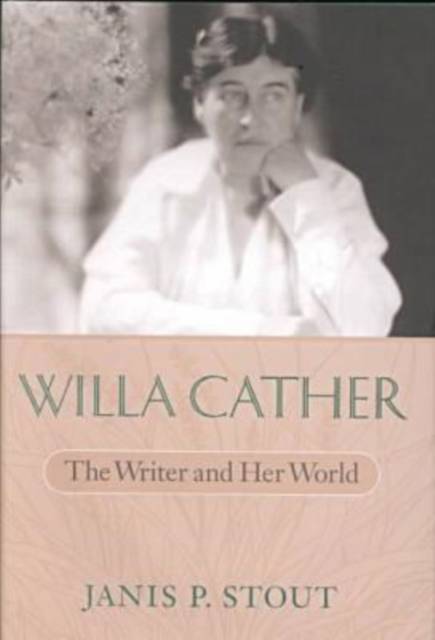
- Retrait gratuit dans votre magasin Club
- 7.000.000 titres dans notre catalogue
- Payer en toute sécurité
- Toujours un magasin près de chez vous
- Retrait gratuit dans votre magasin Club
- 7.000.0000 titres dans notre catalogue
- Payer en toute sécurité
- Toujours un magasin près de chez vous
Description
Previous biographies of Willa Cather have either recycled the traditional view of a writer detached from social issues whose work supported a wholesome view of a vanished America, or they have focused solely on revelations about her private life. Challenging these narrow interpretations, Janis P. Stout presents a Cather whose life and quietly modernist work fully reflected the artistic and cultural tensions of her day.
A product of the South--she was born in Virginia--Cather went west with her family at an early age, a participant in the aspirations of Manifest Destiny. Known for her celebrations of immigrants on the prairie, she in fact shared many of the ethnic suspicions of her contemporaries. Loved by a popular audience for her pieties of family and religion, she was in her youth a freethinker who resisted traditional patterns for women's lives, cutting her hair like a boy's and dressing in men's clothing. Seen by critics since the 1930s as a practitioner of an escapist formalism, she was, in Stout's view, profoundly ambivalent about most of the important questions she faced. Cather structured her writing to control her uncertainty and project a serenity she did not in fact feel.
Cather has at times been viewed as a writer preoccupied with the past whose literary project had little to do with the intellectual currents of her time. On the contrary, Stout argues, Cather was a full participant in the doubts and conflicts of twentieth-century modernity. Only in recoil from her distress at these conflicts did she turn to overt celebrations of the past and construct a retiring, crotchety persona.
The Cather that emerges from Stout's treatment is a modernist conservative in the mold of T. S. Eliot, though more responsive to her time and simultaneously less assured in her pronouncements. Cather's sexuality, too, is more complicated in Stout's version than previous biographers have allowed. Willa Cather: The Writer and Her World presents a woman and an artist who fully exemplifies the ambivalence, the foreboding, and above all the complexity that we associate with the twentieth-century mind.
Spécifications
Parties prenantes
- Auteur(s) :
- Editeur:
Contenu
- Nombre de pages :
- 381
- Langue:
- Anglais
Caractéristiques
- EAN:
- 9780813919966
- Date de parution :
- 29-12-00
- Format:
- Livre relié
- Format numérique:
- Genaaid
- Dimensions :
- 163 mm x 242 mm
- Poids :
- 802 g

Les avis
Nous publions uniquement les avis qui respectent les conditions requises. Consultez nos conditions pour les avis.






